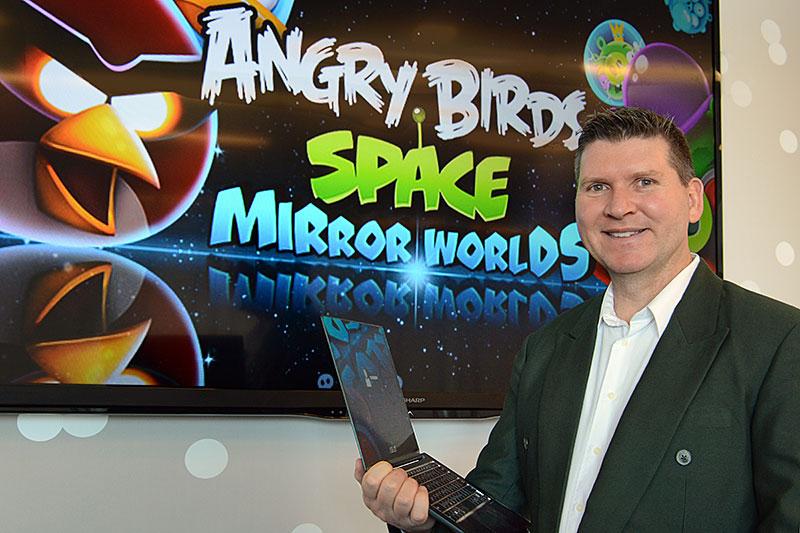Games as scholarship—SUNY Oswego computer science faculty member Christopher Harris has earned a Fulbright Scholar award to spend 10 months in Finland teaching courses in human-computer interaction and working with video-game developers and business people to explore secrets of success that could inform and influence other realms of activity, such as learning and teaching.
The Fulbright Scholar program has awarded Christopher Harris of the SUNY Oswego computer science faculty an opportunity to travel to Finland this August for nearly a year to explore cross-cultural user experience and user design, plus a variety of other research and teaching interests in human-computer interaction and business.
Thanks to the Fulbright award, Harris will teach “HCI and Big Data” at Tampere University of Technology, the University of Tampere and University of Oulu in Finland. His main pursuit, besides teaching courses on big data and cross-cultural user experience, will be to continue research in human-computer interfaces, particularly as it ties to crowdsourcing, data mining, the business of game development and other spheres of human-computer interaction. A SUNY Oswego faculty member since 2013, he also will seek collaborations with scholars and business people.
Among the questions Harris ponders: Why do companies in Finland, Sweden and other countries of Scandinavia seem to have a magic touch in designing multi-platform video games—“Angry Birds,” “Clash of Clans” and “Minecraft,” to name a few—that fascinate children and absorb adults? Yet why can’t the designers find the secret ingredients to repeat their global success at will? How could unearthing the secrets of such cross-generational, cross-cultural hits inform and influence other realms, such as student engagement in learning?
“Why are Scandinavian companies successful producing items that the world wants?” he wondered. “How do they get this collaborative environment to work so well? You want to make it so you give your users a chance to provide input on what to change. These are not big companies, staffed with maybe 20 to 30 people, but they are able to use information from the hundreds of thousands of users to make the product design better.”
‘Flow’ control
Finnish developer Rovio’s mega-hit “Angry Birds,” for example, has been downloaded more than 2 billion times worldwide and spun off cartoons, toys, other games and, coming in 2016, a movie. Yet the Finnish company has been hard-pressed to repeat the success, said Harris, who teaches courses in Oswego’s School of Business as well as in HCI and computer science.
“The gaming industry competes in a very cutthroat market to gain eyeballs, to gain attention,” Harris said. “It’s very expensive to develop a game, and usability is a huge component—making sure that everybody can understand it quickly and be able to maintain what we call ‘flow.’ With flow, designers neither want to make the game too easy, because players get bored, nor too difficult, because players get frustrated. You have to find the sweet spot for everyone, even though the sweet spot may be different for each player. That’s what these game makers are really good at.”
Harris, who worked for more than 15 years in data-related jobs around the world before pursuing a doctorate, said his Fulbright experience will be for 10 months. It will include a side trip to Kenya to study why Vodafone’s M-PESA mobile payment system has gained widespread use there and not in countries with similar economic conditions, such as India and Ghana.
Co-teaching some seminar courses with Finnish scholars will help Harris to also explore what makes Finland’s education system reputedly among the best in the world.
The core U.S. Fulbright Scholar Program provides approximately 800 teaching and/or research grants a year to faculty and experienced professionals in a wide variety of academic and professional fields to work for two to 12 months in more than 125 countries worldwide.
Prior to pursuing his doctorate in informatics at the University of Iowa, Harris worked in industry for many years, including stints as general manager of data consultant Advisa Group in Beijing, senior database engineer at defense and aerospace contractor Raytheon and as database administrator at E! Entertainment Television.
His years in the field give his research a practical edge, Harris said. “When I’m looking for solutions, I think about it not in pure theoretical terms, but also in practical terms—is this going to benefit society as a whole?”




